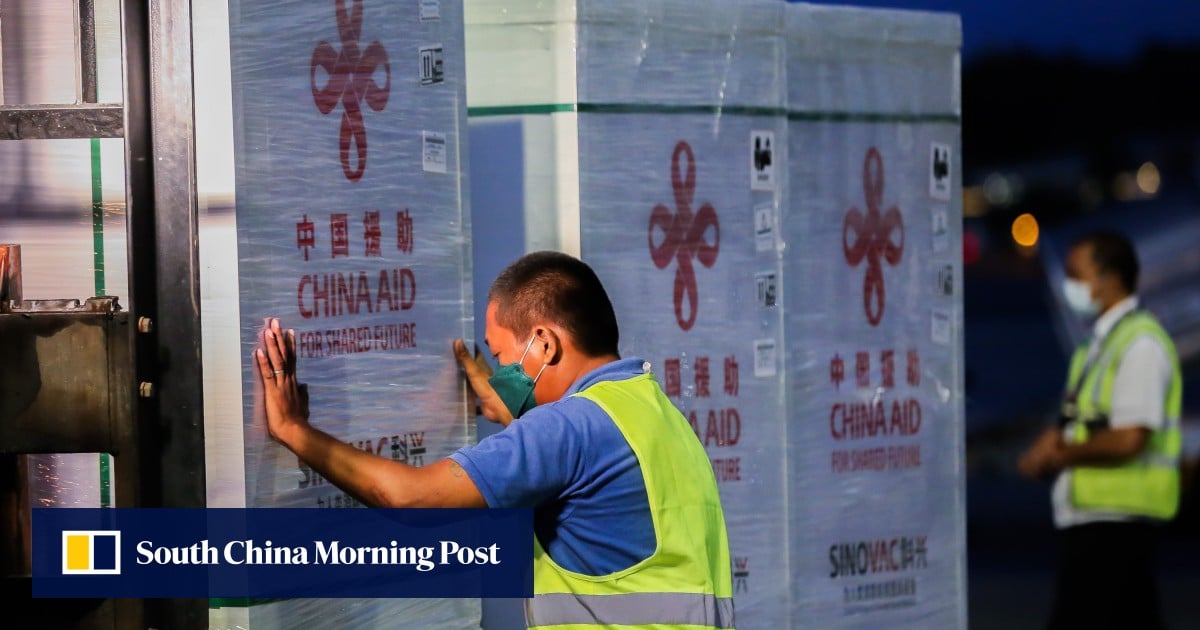
Amid Philippine anger over US anti-vax report, possible fallout could benefit China: analysts
-
-
Philippine lawmakers urge probe into ‘deeply troubling’ report that observers say could damage Filipinos’ trust in the US
Published: 8:20pm, 18 Jun 2024
A controversial report about an alleged campaign by the US military to discredit the effectiveness of China’s Sinovac vaccine in the Philippines at the height of Covid-19 has led to condemnations and demands for an investigation by Filipino government officials.
Analysts say the report could seriously damage Filipinos’ trust in the United States, which would benefit Beijing in the midst of its intense geopolitical rivalry with Washington over influence in the region.
In the wake of the report, which was published on Friday, a number of Philippine government officials have called for an inquiry into the alleged US disinformation campaign.
“The findings by Reuters deserve to be investigated and heard by the appropriate authorities of the involved countries,” Albert Domingo, assistant secretary at the Department of Health, told reporters on Sunday.
House of Representatives Deputy Minority Leader France Castro urged her House colleagues to look into the issue, which she described as “deeply troubling”.
“The impact of this operation on public health cannot be overstated. Public health experts have rightly criticised this campaign for endangering lives and undermining trust in vaccines, including those manufactured in the United States,” Castro said on Sunday.
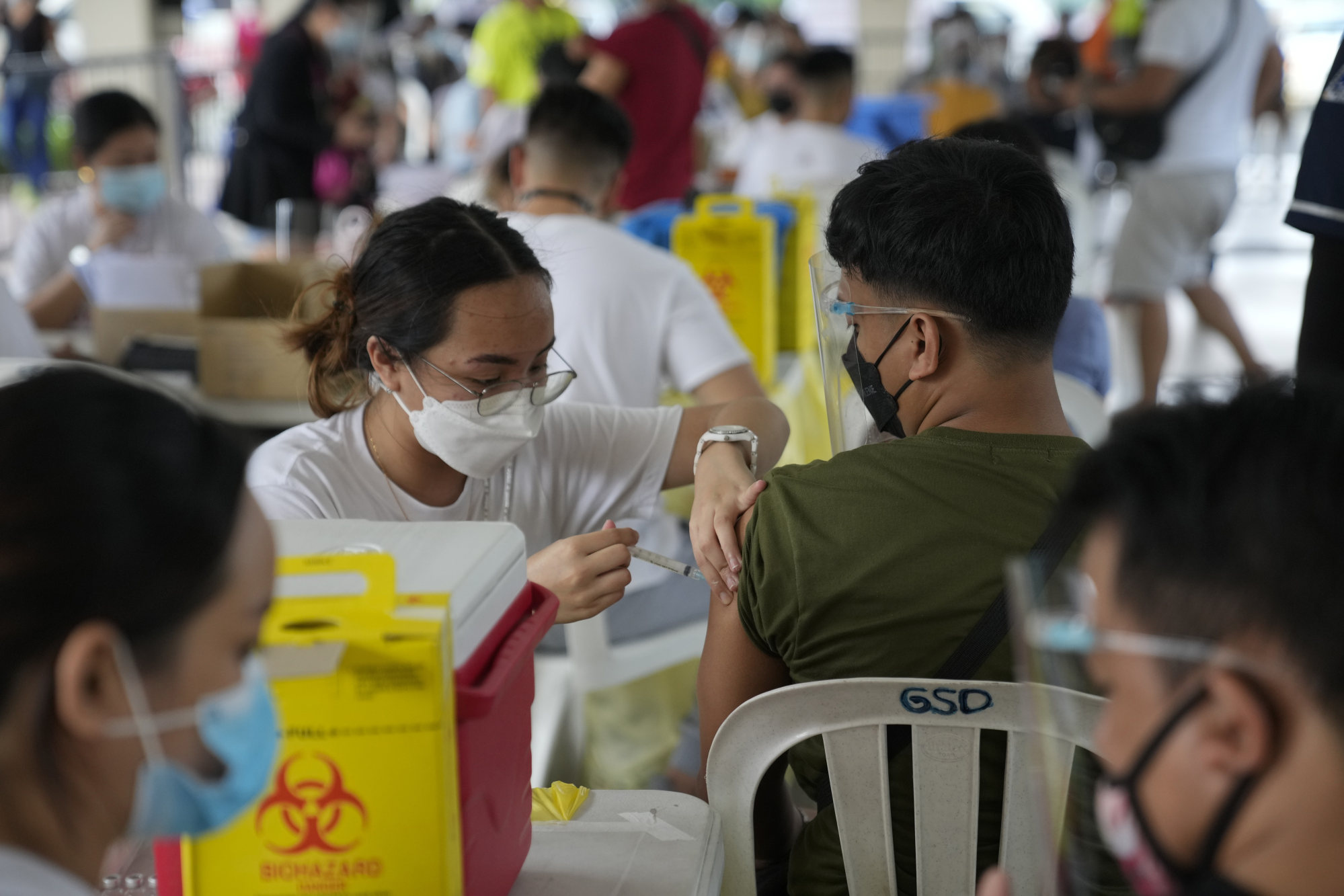
The report alleges the US military used a combination of fake social media accounts on multiple platforms to spread fear of China’s vaccines among the Filipino public at a time when the virus was killing tens of thousands of people each day.
The US Defence Department did not deny the report and suggested on Sunday that the effort was an attempt to counter “malign influence campaigns” run by Beijing.
While some Filipino officials called for an investigation into its accusations, Carlito Galvez Jnr, former president Rodrigo Duterte’s vaccine tsar, expressed doubts about the Reuters report in a statement released on Monday.
“I am not aware of anything like this since all countries through their embassies are trying to help us to acquire available vaccines in the market. As far as I can remember, most of our friends and allies even said that ‘the best vaccine is the vaccine in our shoulders’. Meaning whatever vaccine we had and available, we have to take it immediately,” he added.
In the Philippines, China’s Sinovac was one of the first Covid-19 vaccines made available by the government at the height of the pandemic. The Duterte administration received a total of 50 million of Sinovac vaccines.
Former health secretary, Congresswoman Janette Garin, on Monday condemned any effort that “demonised” a vaccine, noting it could lead to public distrust in immunisation programmes.
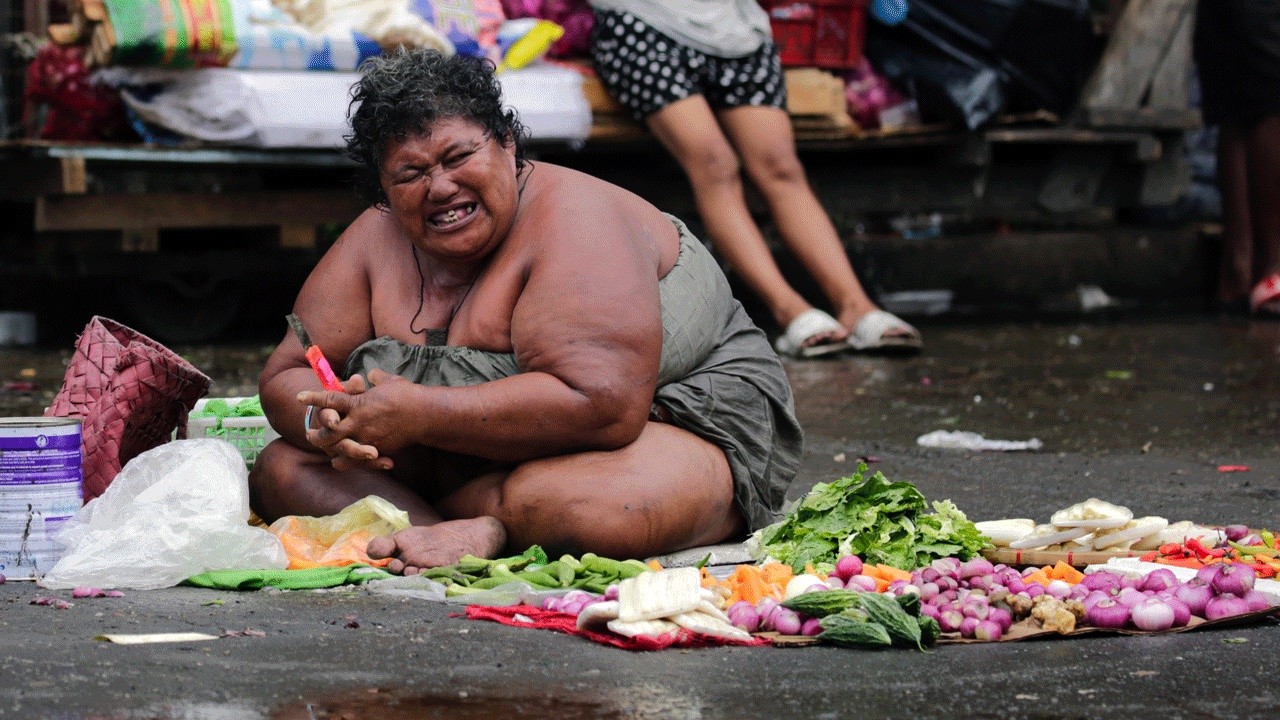
01:34
Covid pandemic worsens poverty in the Philippines, leaving millions more impoverished
Covid pandemic worsens poverty in the Philippines, leaving millions more impoverished
Ramon Beleno III, head of the political science and history department at Ateneo De Davao University in Davao City, said the report would only benefit China, which was jostling with the US for greater influence in the region.
“The report is not fake news. But the timing of when it was released matters. To sow fear among Filipinos,” Beleno told This Week in Asia on Tuesday.
“We Filipinos are inclined to believe that the US is more credible compared to China. It will be problematic if we put all our eggs in the US and at the end of the day they will not help us. The US was not honest with us all along. That’s dangerous because the promise of full support is coming from people we trust.”
Beleno said President Ferdinand Marcos Jnr should balance his foreign policy amid the central government’s all out dependence on Washington.
“What China knows is that our government is dependent on the US. One way for us to distance ourselves from the US is to discredit the US itself … To plant a certain amount of doubt. When they do that, it’s a big impact,” Beleno said.
“The government should have a neutral stance … Yes, there is assistance coming from the US, but we should not close our door in talking to China. What if the US will not be on our side any more, how do we deal with China?”
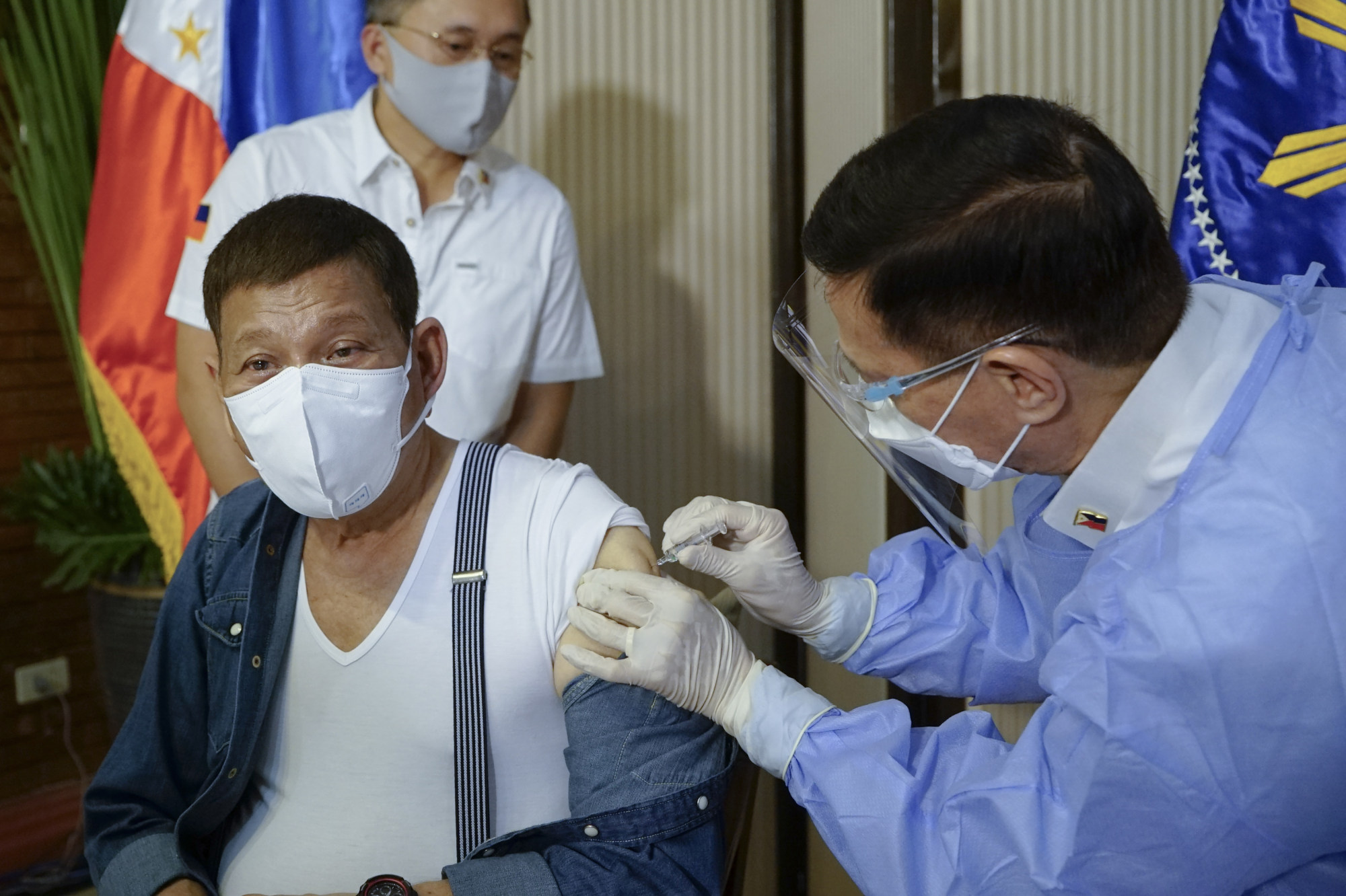
Security analyst Chester Cabalza, founding president of the Manila-based International Development and Security Cooperation think tank, told This Week in Asia that the report could be a political risk for Duterte as he endorsed Chinese-made vaccines and volunteered to be vaccinated with the Sinopharm jab.
Asked why the report came out at a time when the US was actively opposing China’s actions in the West Philippine Sea, Cabalza said it was part of the ongoing cognitive warfare between the superpowers in the Philippines.
“Mainly because Filipinos trust the US more than China in the country. So Manila becomes a guinea pig of power contestation of the two opposing powers to edge each other on soft and hard powers,” he said. “This is just the beginning of a global intensification of US versus China tensions in Philippine territory.”
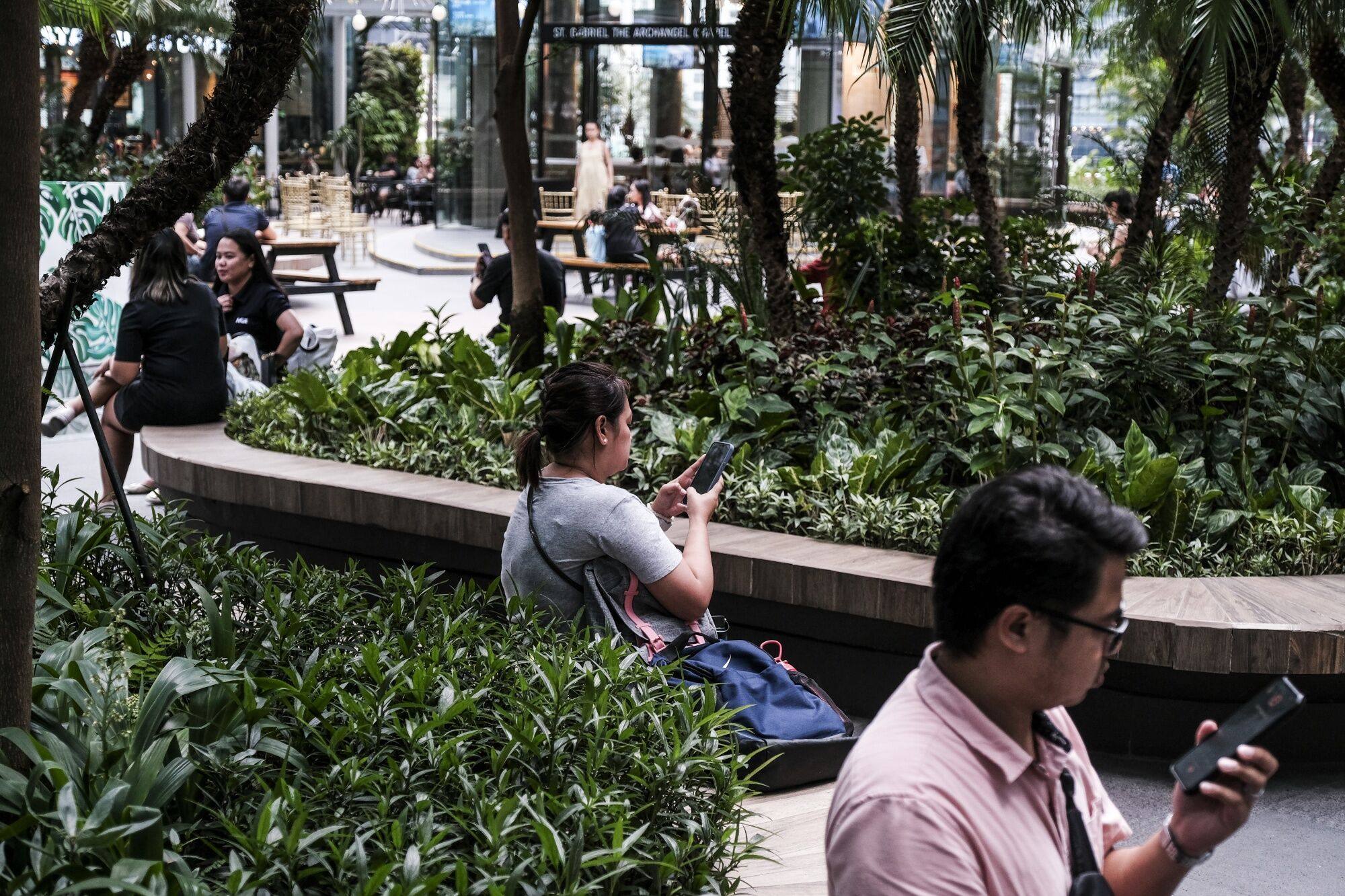
Don McLain Gill, a geopolitical analyst and lecturer at the Department of International Studies of De La Salle University, said the spread of any form of information operation like the Reuters report needed to be addressed by the central government.
“The Philippines is a known victim of various disinformation campaigns. Given our limited cyber defence capabilities, it is crucial to encourage public private partnerships,” Gill told This Week in Asia.
China has been accused of conducting disinformation campaigns in the Philippines, most recently involving the amplification of rumours about a potential civil war, which analysts linked to Beijing’s larger efforts to weaken the government in order to press its territorial claims in the South China Sea.
Comparing the two alleged disinformation campaigns, Gill said Beijing’s might be considered a greater danger overall.
“If we are objectively assessing the case of the Philippines, Chinese information operations aim to dismantle the state’s capacity and to secure its sovereignty and sovereign rights. This is far more critical and dangerous than information operations that seek to offset another power’s influence,” he added.
